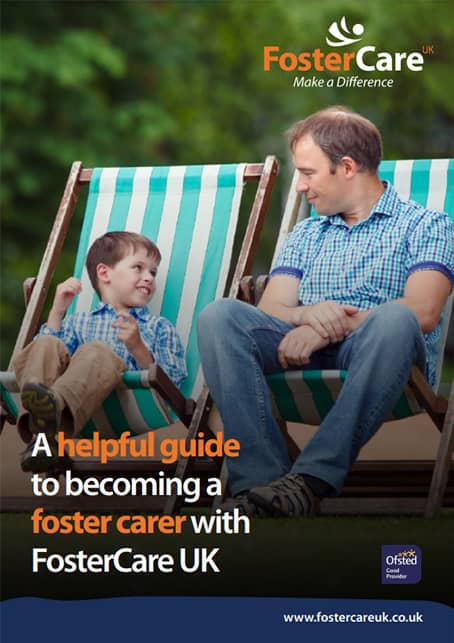


What happens when a child is taken into care?
Benefits of being a foster parent
What is a care leaver?
How to become a foster parent
How to foster a child
What are the foster care requirements
Can I choose who I foster?
Fostering with pets FAQ
How long does it take to become a foster parent?
What is the role of an independent fostering agency?
Fostering a disabled child
Tips for coping when foster placements end
Do foster carers pay tax?
What to expect in a fostering assessment
Common Fostering Challenges and Solutions
What disqualifies you from being a foster carer?
Muslim Fostering
Fostering as a single parent
Can you foster a child with a criminal record?
Can you work and foster?
Top 10 fostering myths
Can I foster if…?
Can I foster and rent?
LGBT Fostering: can I foster if I’m gay
Top transferable skills to become a foster carer
Can you foster with a mental health condition?
Christian Fostering
Sikh Fostering
Cultural Diversity in Foster Care
How to encourage foster children to read
Reasons for a child to be taken into care
Tips for coping with attachment disorders in Foster Children
Fostering vs Adoption
What happens when foster parents get divorced?
What is reunification in foster care?
How to deal with foster child bullying
A guide to the foster care handbook
Guide to fostering young children
Types of self-harm
A guide to fostering teenagers
What are the signs of depression in foster children?
One of the most common myths about becoming a foster carer is that you must own your home to be eligible. This isn’t the case – and you can be considered for fostering whether you rent a property or own your home.
What’s most important is that you possess the qualities to provide a safe and loving family home for a child or young person who needs it. From living in a rented house to advertising your spare rooms to lodgers or temporary guests, this guide covers exactly how fostering and renting works.
Yes - you can foster a child in a rented house as long as you meet the criteria for fostering, which includes having enough space for the child and a spare room. It’s likely that some foster children may not have had their own bedroom before, so it’s important that you are able to provide them with a private space where they can play, relax and adjust to their new life. The only instance where sharing a bedroom is accepted is if you’re fostering siblings who are under the age of 10. However, if they are older or specified to need their own bedrooms, the children will need to have separate bedrooms.
Above all else, a stable and supportive environment is key to the wellbeing of the foster child. Before beginning the assessment process, you should seek permission from your private landlord, housing association or council. One of the most important factors to fostering a child is providing consistency – therefore, you should be planning to remain in your current, home, and there should be no rent arrears or risk of eviction.
The fostering assessment process involves a thorough assessment of your home and living environment – which includes establishing if you own any pets, your living situation (whether you are fostering as a single parent, or wanting to continue working) and other elements.
As well as the legal foster care requirements, there are additional considerations that you should think about before deciding that fostering is right for you, including:
If you have multiple spare bedrooms, rent out your home to a tenant or advertise your home on temporary accommodation sites, such as Airbnb, this will all be examined during your fostering assessment.
One of the many advantages of being a foster parent is that it’s an incredibly rewarding career for those ready to invest a great amount of time and energy into a child – however, this means that while you are fostering a child, they should become the main priority. Many children who have been placed in foster care may have had inconsistent or challenging upbringings in their early childhood. As their foster parent, you will be expected to put their wellbeing at the forefront of the decisions you make, including how to use spare bedrooms in the home.
If you have a permanent lodger in your home, they will also be assessed as part of the initial fostering process. This is because they will act as a permanent fixture in the child’s homelife, and their eligibility for being around this child needs to be determined.
Things get more complicated if you advertise a spare room on sites such as Airbnb, and you’re likely to have different people staying in the home over various periods of time. The reason behind this is that each of the people renting out a room in your home would need to be assessed, which would be particularly difficult if you’re wanting to advertise this as a listing for temporary accommodation. The fact is that children in the care system need a sense of routine and stability in order to move forward with their lives, and this would be put at risk by renting out a spare bedroom on a temporary basis – so this is likely to affect your ability to foster.
Looking for more information on fostering and renting, or about what happens to a child when they are taken into care? Get in touch with a member of our friendly team today. Here at FosterCare UK, we’re on hand to provide the fostering support and advice regarding fostering as a career you need, while also answering any other questions you may have.
If you’ve got any questions or would like to find out more about fostering with Capstone, fill out the form below.
An experienced fostering advisor from your local area will then be in touch.

Start the conversation today. Our team of friendly advisors are on hand to answer any foster care questions you may have. We can offer you honest and practical advice that can help you decide if becoming a foster carer is the right path for you.


